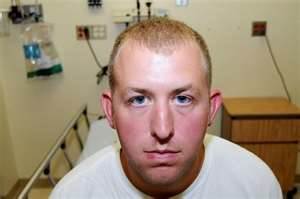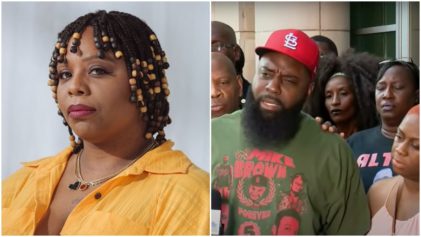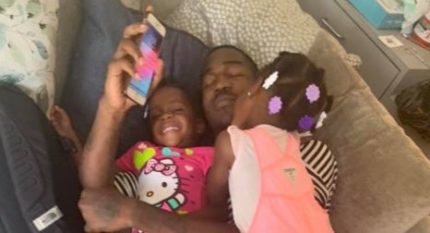Lending significant credence to the contention that St. Louis County prosecutor Bob McCulloch mishandled the Darren Wilson grand jury, a member of the jury has filed a lawsuit through the ACLU to be allowed to publicly discuss the case, claiming that McCulloch was wrong when he implied all 12 jurors didn’t think there was enough evidence to charge Wilson.
As a member of the grand jury, the unidentified plaintiff wants to be able to speak about the case but can’t because the grand jury members are subject to a lifetime gag order. The lawsuit is a major development because up to this point the nation had to rely only on the explanation offered by McCulloch without being able to hear the perspective of the people who actually judged the evidence against Wilson. Because the jurors were under a gag order, McCulloch essentially was free to characterize their deliberations in any way he saw fit—and in a way that presented him in a more positive light than perhaps he deserved.
“In Plaintiff’s view, the current information available about the grand jurors’ views is not entirely accurate—especially the implication that all grand jurors believed that there was no support for any charges,” the lawsuit says.
The lawsuit names McCulloch as the defendant, since he is in charge of overseeing the gag order.
“Right now there are only 12 people who can’t talk about the evidence out there,” ACLU attorney Tony Rothert told the Associated Press. “The people who know the most—those 12 people—are sworn to secrecy. What (the grand juror) wants is to be able to be part of the conversation.”
The suit includes fairly damning descriptions of McCulloch’s performance, saying the legal standards in the case were discussed in a “muddled” and “untimely” manner.
There were stories after the grand jury verdict contending that McCulloch erred in not giving the jurors more options in bringing charges against Wilson.
The suit is not trying to overturn the grand jury process—it merely contends that the circumstances of the Wilson case are unique because there is such an intense public interest in hearing from the juror.
“The rules of secrecy must yield because this is a highly unusual circumstance,” Rothert said. “The First Amendment prevents the state from imposing a lifetime gag order in cases where the prosecuting attorney has purported to be transparent.”
The grand jury of nine whites and three Blacks met over the course of three months, coming together on 25 days to hear more than 70 hours of testimony from about 60 witnesses. According to the AP, McCulloch said during a radio interview last month that some of the witnesses clearly lied to the grand jury.
Rothert said the same grand jury members were able to compare how McCulloch handled the Wilson case to other cases because the grand jury had been empaneled since May and had been hearing other cases before it started hearing evidence in the Brown murder in August. The lawsuit accuses the prosecutor of handling the Wilson case much differently than the other cases, with “a stronger focus on the victim.”
“Believe me, there’s already more than a fair amount of skepticism about whether this process was fair, notwithstanding Mr. McCulloch’s cynical attempt to pretend that it was fair,” Jim Cohen, associate professor at Fordham University Law School and a grand jury expert, told the AP, adding that the juror had a strong case. “This matter has been discussed by virtually everybody in the universe with the exception of any person actually subjected to the presentation of evidence.”



